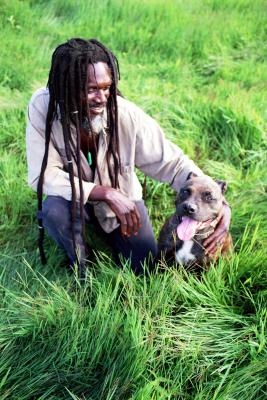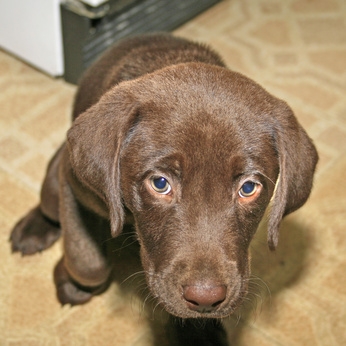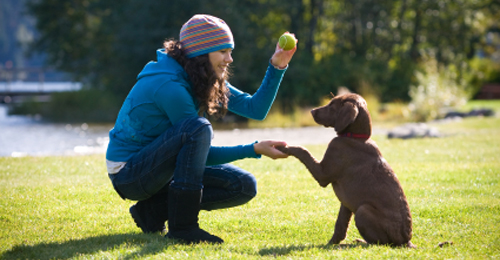
How to Know When to Start Training a Puppy. A common question for dog trainers is: "When should I start training my puppy?" There is a lot of misinformation out there about puppy training--and some of that info. can harm your puppy. In this article you'll learn why, where, when and how you should start training your puppy--to avoid the myths--and keep you on the right track.
The best time to start puppy training may surprise you. You should start training your puppy as young as 8 weeks old. Your puppy can learn basic commands like "sit," "down," "stand stay" and "come." By starting the training this early, your dog will be much easier to train as he gets older. Some common advice that has been given for years is to wait until your puppy is 6 months old to start training. This is terrible advice and will make it much harder to train your dog. At 6 months old your dog will have developed behavior problems that will need to be worked on.
Enroll your dog in a puppy class. Puppies need to be socialized, and you have a very short window of time to do this. Once your pup is about 4 months old your window of opportunity is closed. An improperly socialized puppy can develop behavior problems that can be very difficult, if not impossible, to overcome.
Make all of your puppy training positive. Negatives should not be used; your puppy is too young and does not understand punishment. Focus on catching your puppy doing something right and reward. Don't focus on catching your puppy doing something wrong and punishing.
Concentrate on management, which is very important at this stage. Crates, baby gates and X-pens are all great management tools. When you can't watch your pup, use a crate to confine your puppy. It will help with your training and is safer for your pup. Over the years I have talked to many dog owners that don't like the idea of crates. They aren't considering that puppies like to chew and swallow anything they can get their mouths around including electrical wires; a puppy confined to a crate can't chew on a wire and get injured or worse.
 Free Potty-Training Tips for Female Pit Bull Puppies
Free Potty-Training Tips for Female Pit Bull P
Free Potty-Training Tips for Female Pit Bull Puppies
Free Potty-Training Tips for Female Pit Bull P
 How to Train Kittens to Use the Litter Box
How to Train Kittens to Use the Litter Box
How to Train Kittens to Use the Litter Box
How to Train Kittens to Use the Litter Box
 Crate Training an 8 Week Old Lab Puppy
Crate Training an 8 Week Old Lab Puppy
Crate Training an 8 Week Old Lab Puppy
Crate Training an 8 Week Old Lab Puppy
 Cesar Mulin Puppy Potty Training Tips
Cesar Mulin Puppy Potty Training Tips
Cesar Mulin Puppy Potty Training Tips
Cesar Mulin Puppy Potty Training Tips
 Secrets To German Shepherd Coaching
Keep the courses sessions short but often. When things lose
Secrets To German Shepherd Coaching
Keep the courses sessions short but often. When things lose
Copyright © 2005-2016 Pet Information All Rights Reserved
Contact us: www162date@outlook.com